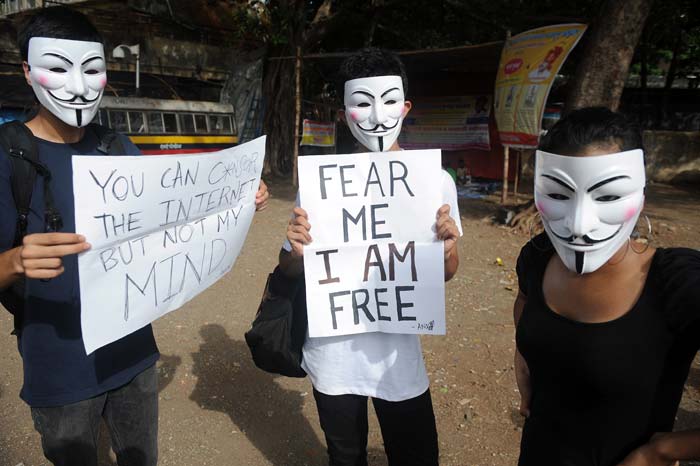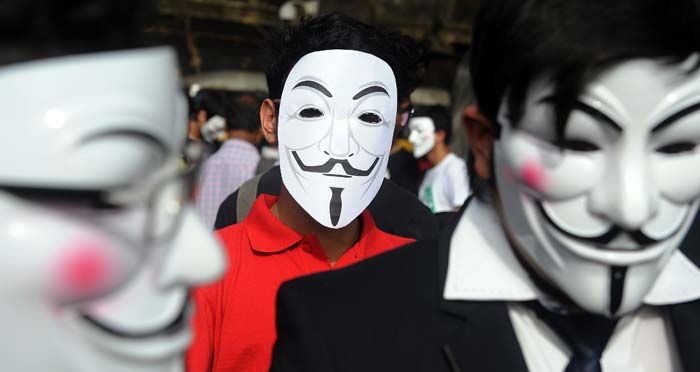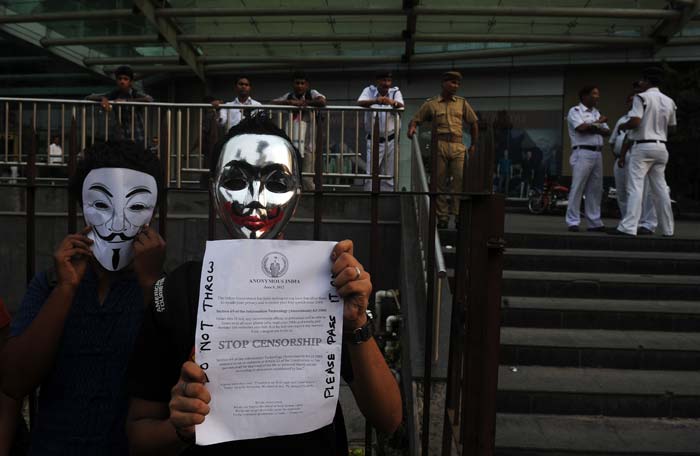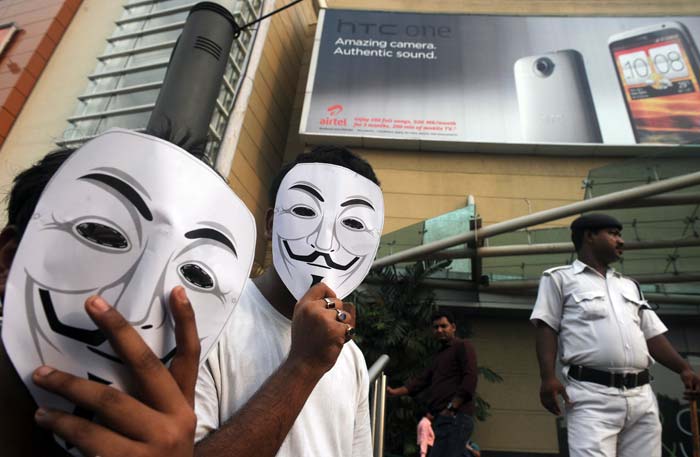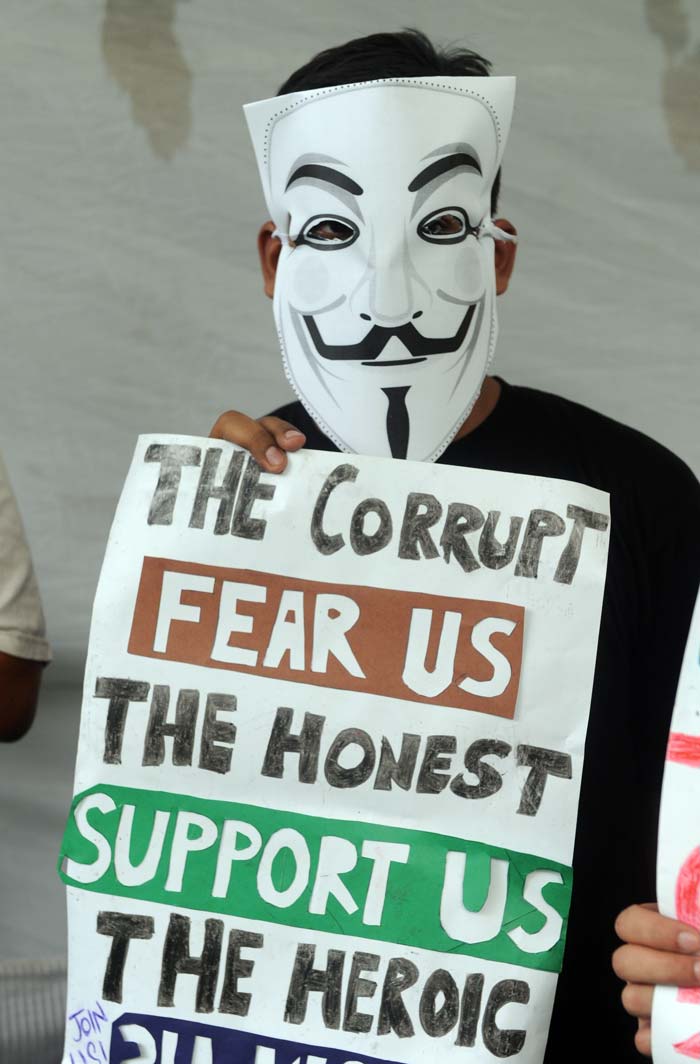'Anonymous' protests across India over Internet laws
A countrywide protest against censorship on the Internet saw youngsters join hands at Jantar Mantar in Delhi and other cities across India.
-
A countrywide protest against censorship on the Internet saw youngsters join hands at Jantar Mantar in Delhi and other cities across India.
Wearing 'Guy Fawkes' masks, synonymous with global protests where protesters prefer to keep their identity concealed, the protesters raised slogans to create more awareness on the new amendments to the IT Act. (Picture courtesy: NDTV) -
Rallies in New Delhi, Mumbai, Bangalore and Kolkata followed a court order on March 29 demanding 15 domestic Internet providers block access to file-sharing websites such as Pirate Bay.
The order has resulted in access being denied to a host of websites that carry pirated films and music among other legal content, including isohunt.com and pastebin.com. (Picture courtesy: NDTV) -
On Wednesday, hackers attacked the website of state-run telecom provider MTNL, pasting the logo of the Anonymous group - the mask of 17th century British revolutionary Guy Fawkes - on mtnl.net.in.
Supporters also accused the government of trying to create a "Great Indian Firewall" to establish control on the Web. (Picture courtesy: NDTV) -
Around 100 protesters gathered near Mumbai's main rail station, while a similar number also attended a rally in the information technology hub of Bangalore and a smaller group assembled in a Kolkata shopping mall.
Many wore Guy Fawkes' masks and vowed to hack into the websites of other large Indian corporations and the government sites. (Picture courtesy: AFP) -
The new rules regulating Internet companies - providers, websites and search engines - instruct them that they must remove "disparaging" or "blasphemous" content within 36 hours if they receive a complaint by an "affected person". Seen here, protesters near a mall in Kolkata. (Picture courtesy: AFP)
-
The government has become embroiled in a row with social networks after Telecoms Minister Kapil Sibal held a series of meetings with IT giants Google, Yahoo! and Facebook last year to discuss the pre-screening of content.
Since these meetings, 19 Internet firms including Google, Yahoo! and Facebook have been targeted in criminal and civil cases lodged in lower courts, holding them responsible for content posted by users. (Picture courtesy: AFP)




